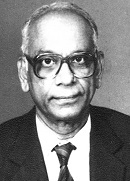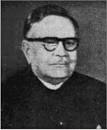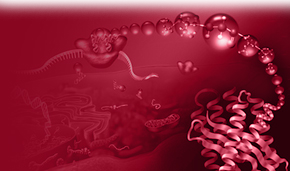|
|

|
|
Science Sparks @ ACTREC
|
 19 December 2022 19 December 2022 |
Vol. No. 11; Issue No. 557 |
|
|
Publications
|
|
1. Gupta T, Maheshwari G, Joshi K, Sawant P, Mishra A, Khairnar S, Patel P, Sinha S, Swain M, Budrukkar A, Ghosh-Laskar S, Agarwal JP (2022). Image-guidance triggered adaptive radiation therapy in head and neck squamous cell carcinoma: single-institution experience and implications for clinical practice. Journal of Medical Imaging and Radiation Sciences.
2. Venkatesulu B, Liauw SL, Joshi M, Brian Baumann B, Yoo R, Roupret M, Choudhury A, Efstathiou J, Murthy V, Sargos P, Solanki A (2023). Multidisciplinary management and radiotherapy recommendations for clinically and pathologically node-positive bladder cancer. Seminars in Radiation Oncology. 33 (1): 35-50.
|
|
|
|
|
Interesting Reads
|
|
Ueda T, Shiina S, Iriguchi S, Terakura S, Kawai Y, Kabai R, Sakamoto S, Watanabe A, Ohara K, Wang B, Xu H, Minagawa A, Hotta A, Woltjen K, Uemura Y, Kodama Y, Seno H, Nakatsura T, Tamada K, Kaneko S. Optimization of the proliferation and persistency of CAR T cells derived from human induced pluripotent stem cells. Nat Biomed Eng. 2022.
|
|
|
Legends of Science
|

|
Vallabhaneni Sita Rama Das
V S Rama Das Obtained his Dphil from the University of Oxford, UK, in 1957. His research interest was in the area of plant physiology, covering photosynthesis. His pioneering work was in isolating biochemically pure chloroplasts uncontaminated by the mitochondria. He served on ICAR, CSIR, DAE, and DNES expert committees. He is the recipient of the J C Bose award by UGC and the S B Saksena Memorial Award by INSA. He was elected fellow of the Indian Academy of Sciences, Bangalore, and the National Academy of Agricultural Sciences, New Delhi.
|
|
| |

|
Ram Kumar Saksena
Ram Kumar Saksena received his DSc from the University of Sorbonne, Paris, in 1935. His research interest included mycology, taxonomy, and plant pathology. He carried out a detailed study of various soil and aquatic fungi and Mucorales. Mycologists created a Genus Saksenaea in Mucorales after him. Dr. Saksena was the recipient of the Birbal Sahani Award in 1968. He was the President National Academy of Sciences, Allahabad, and President, of the Indian Botanical Society and Indian Science Congress in 1953.
|
|
| |
|
|
Upcoming Events
|
| |
|
|
| |
|
|
|
|
| |
|
Immuno-Oncology 360°
|
|
07-10 February, 2023
|
|
At New York Marriott at the Brooklyn Bridge, Brooklyn, NY.
|
|
|
| |
|
|
Do You Know?
Dr. Jane C. Wright demonstrated the use of the antifolate, methotrexate in solid tumors, showing remission in breast cancer.
|

|
|
|
Cancer News
|
|
Biosensor allows rapid detection of oral cancer
|
|
14 December 2022, Inside Precision Medicine
|
|
This device comprises a sensor, similar to a glucose strip, and a circuit board (a hand-held terminal like a glucometer) for detection. It uses a transistor-based technology for testing the biomarker CIP2A highly expressed in OSCC cell lines and dysplastic and malignant human oral epithelial tissues, but not in normal controls. This protein binds to and inhibits PP2A, a tumor suppressor. PP2A inhibition leads to increased cell proliferation...
|
|
|
| |
|
New method predicts efficacy of common breast cancer drug
|
|
15 December 2022, Technology Networks Cancer Research
|
|
The study identifies the first specific predictive factors for a conventional chemotherapy treatment, for which only indirect or imperfect predictive markers were known until now...
|
|
|
| |
|
Cancer treatments boosted by immune cell hacking
|
|
15 December 2022, Nature
|
|
To bolster the power of CAR-T therapies, researchers have further engineered the cells to contain switches that allow control over when and where the cells are active. The hacked cells produce a protein that stimulates T cells, to counteract immunosuppressive signals that are often released by tumours... |
|
|
| |
|
|
|
|
|
|
2022 Advanced Centre for Treatment, Research and Education in Cancer (ACTREC)
|
|
